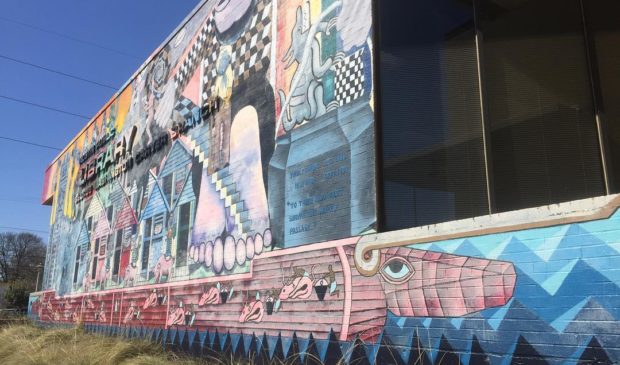Council to tackle two displacement resolutions today
Thursday, August 17, 2017 by
Jack Craver While Mayor Steve Adler is touting a new task force on gentrification as a fresh opportunity to come up with ideas to address economic displacement, some of his City Council colleagues stress that it will only be a worthwhile effort if it is followed by meaningful action from city leaders.
Council is poised to approve two resolutions relating to displacement at its meeting today. One authorizes the city manager to find a team at the University of Texas to do a study on gentrification over the next year. The second resolution calls for the creation of the task force and specifies that at least four of the 11 members should be people experiencing displacement due to economic pressure.
While Mayor Pro Tem Kathie Tovo has welcomed the new task force, she said on Tuesday that she hoped the group wouldn’t “start all over” but rather build on the work done by previous task forces and commissions on the subject. To that end, she has identified three dozen resolutions approved by commissions or Council in recent years that include suggestions for how to deal with gentrification.
Council Member Jimmy Flannigan voiced even greater skepticism, saying that he was “hesitant to create more task forces and commissions on items that have been worked on in the past.”
The challenge for Austin in addressing displacement is not a lack of ideas, said Flannigan, but a lack of political will to put them into action.
“It’s inherently a political problem, not an ideas problem,” he said. “The ideas are out there.”
Flannigan made similar comments in recent weeks about a proposed task force to come up with solutions for the city’s pools, arguing that the task force was largely a way to avoid making some of the tough choices called for in the recently released Aquatic Master Plan, which was the product of a lengthy stakeholder engagement process and which instructed Council to either pony up big money for pools or else close facilities.
Flannigan referenced that issue on Tuesday, saying it was another example of Council unwilling to take action even after significant input from the community and experts.
“We pull in the community, we have this debate but ultimately it’s a failure of political will,” he said.
It’s entirely possible, replied Adler, that the task force will agree with Flannigan, “and say exactly that.”
Asked later what ideas exist for preventing displacement, Flannigan said, “It’s not so much that there are one or two magical solutions in my head … but that we’ve been having this conversation” for years in Austin.
Nevertheless, Flannigan said he will support the creation of the task force.
Council Member Pio Renteria, whose East Austin district has significantly gentrified in recent years, struck a somber note on the issue, recounting the city’s past failure to fund affordable housing as well as efforts by Republicans at the state level to undermine city efforts.
“The problem has always been the city’s lack of will to invest in affordable housing,” he said, recalling a number of ways the city had failed to step up to the plate, including by failing to acquire land for affordable housing when it was cheaper and dragging its feet on the creation of the first homestead preservation district in 2007.
“We were saying, ‘Please do something, please do something,’ but they just couldn’t because of the budget restrictions at the time,” he said.
GOP leaders in state and federal government have only made matters worse, said Renteria.
Former President George W. Bush made major cuts to the Community Development Block Grant, one of the traditional funding streams for subsidized housing that has also been targeted for elimination in the budget proposed by President Donald Trump.
Meanwhile, Republicans at the state legislature have outlawed cities from putting in place rent control, inclusionary zoning and, most recently, linkage fees.
That doesn’t leave much for the city to do besides try to acquire land through community land trusts and entice developers to build affordable units through density bonuses, said Renteria.
“It’s going to be a real struggle to find the resources,” he said.
Council Member Ora Houston, whose district has also been deeply impacted by gentrification, raised concerns about the timeline of the task force and the demands on the task force members, who will be expected to meet twice a month for six months.
Asking people who are dealing with displacement to come twice a month may be unrealistic, she said, adding that six months is far too short a time frame to thoroughly examine the issue.
The problem, replied Adler, is that he wants to get the input from the task force as soon as possible so that its findings can guide Council’s approach to CodeNEXT, the overhaul of the city land use code that Council is expected to vote on in the spring.
Photo by gina pina made available through a Creative Commons license.
The Austin Monitor’s work is made possible by donations from the community. Though our reporting covers donors from time to time, we are careful to keep business and editorial efforts separate while maintaining transparency. A complete list of donors is available here, and our code of ethics is explained here.
You're a community leader
And we’re honored you look to us for serious, in-depth news. You know a strong community needs local and dedicated watchdog reporting. We’re here for you and that won’t change. Now will you take the powerful next step and support our nonprofit news organization?




